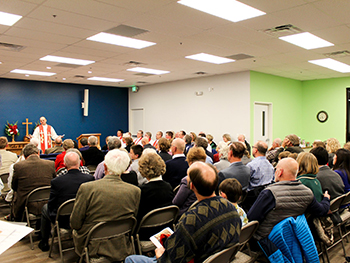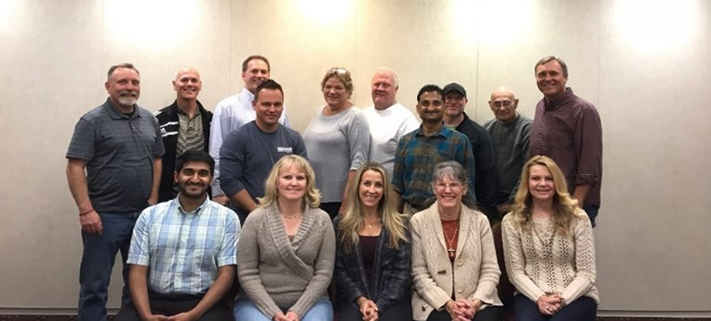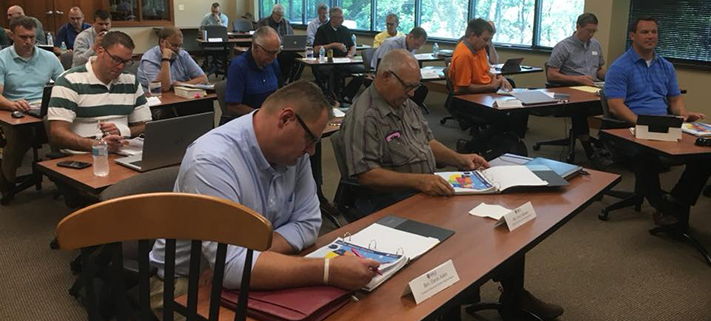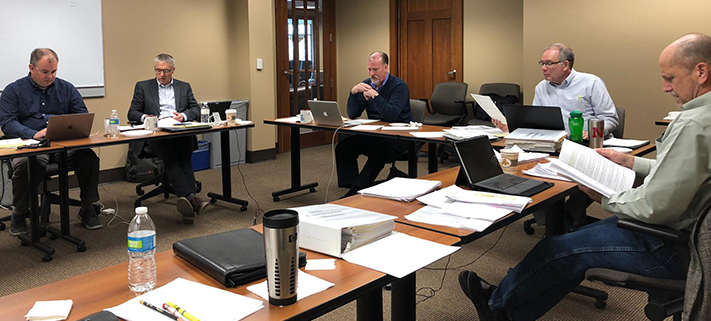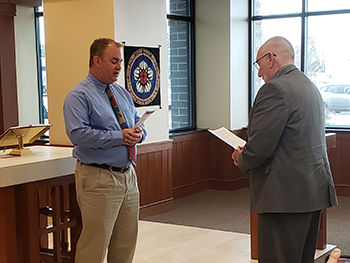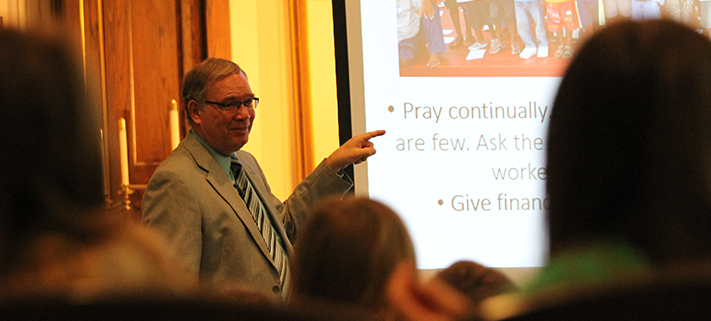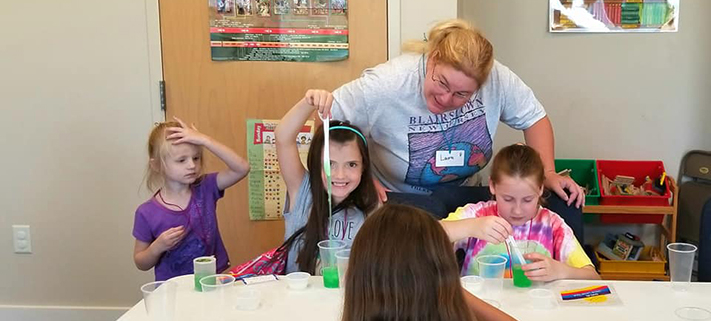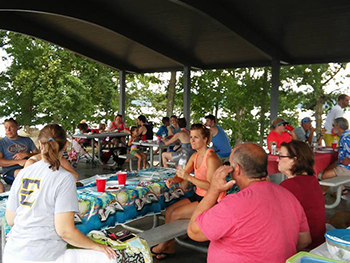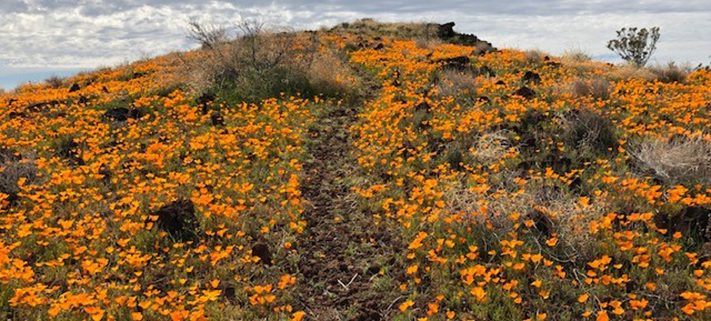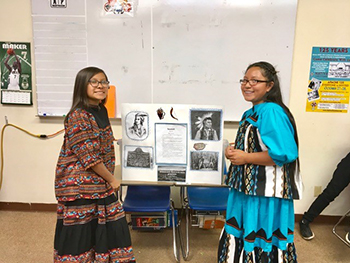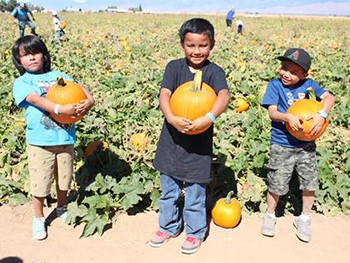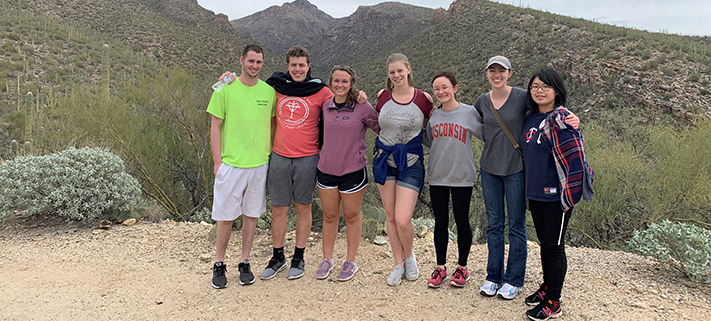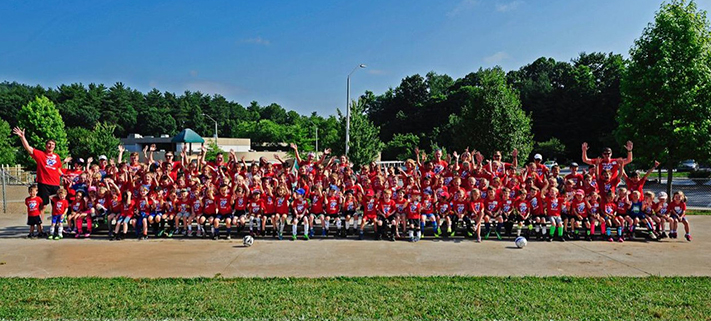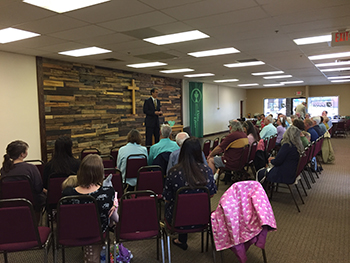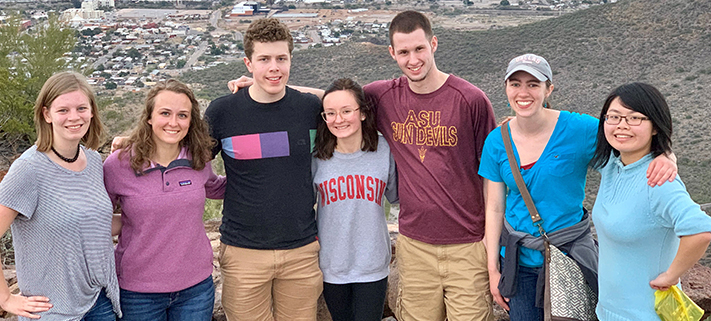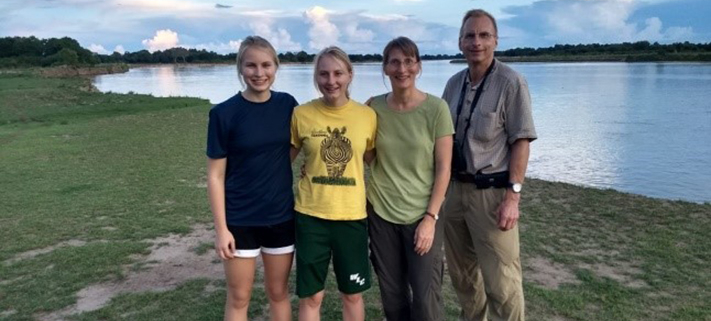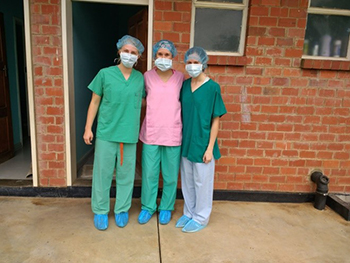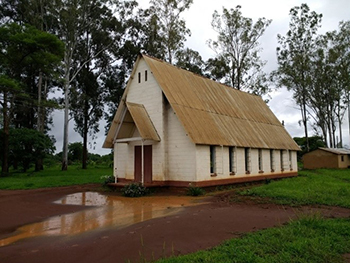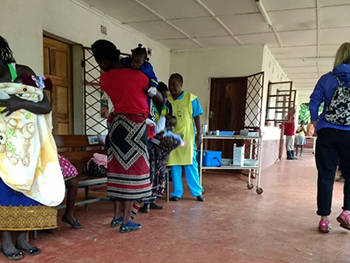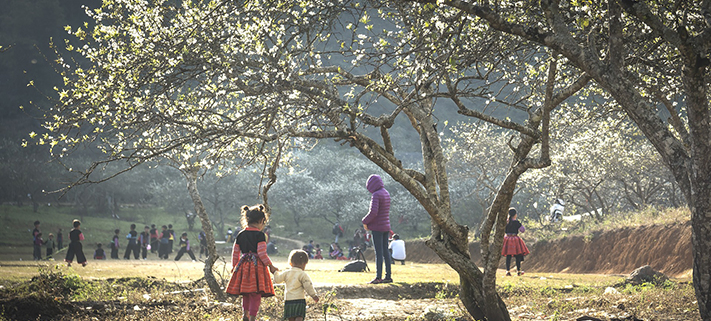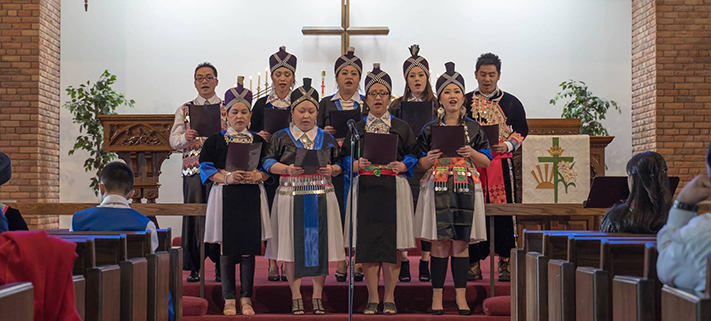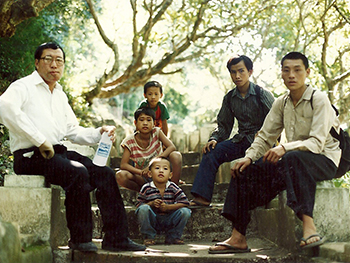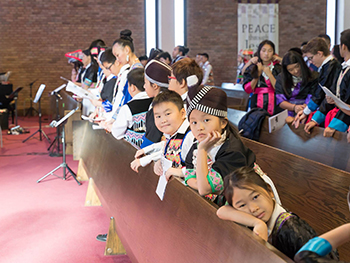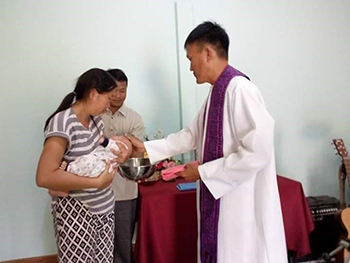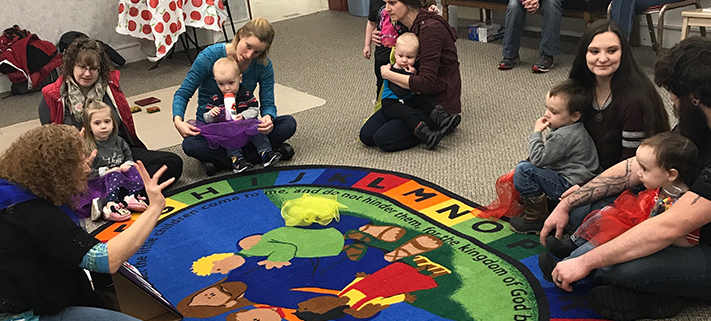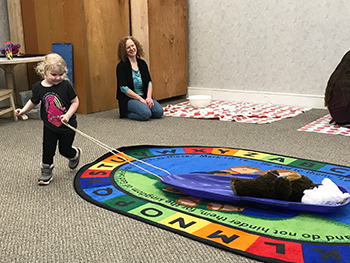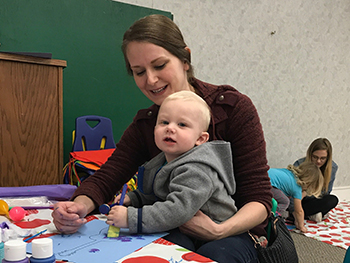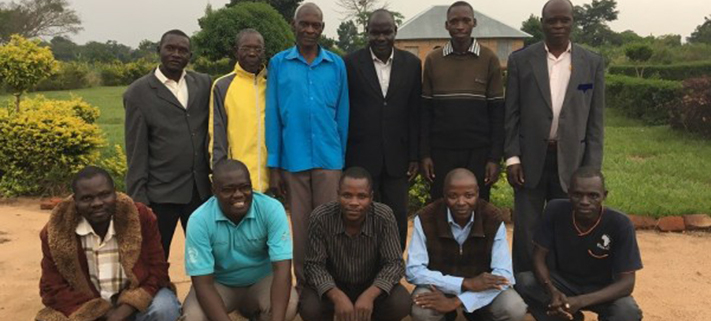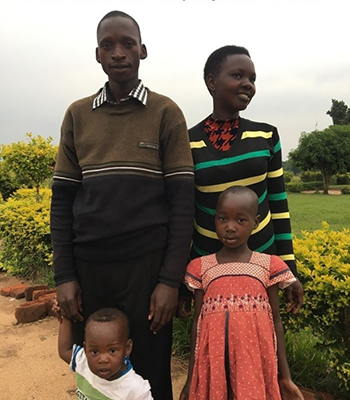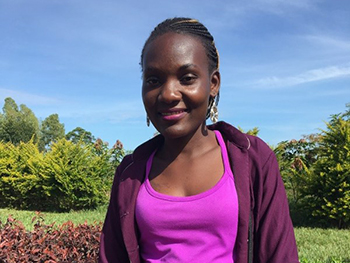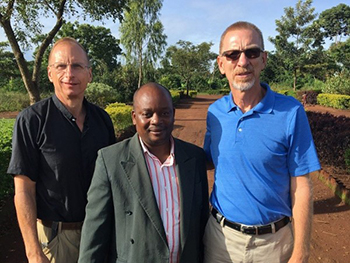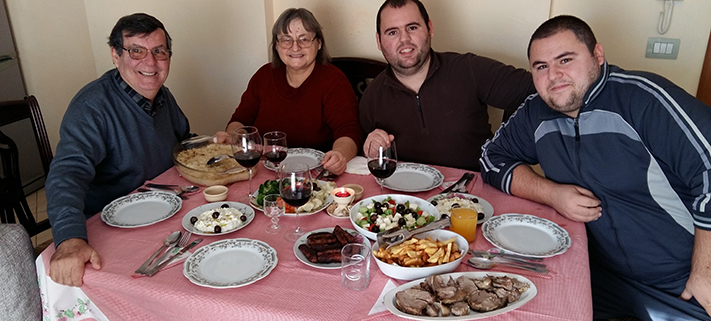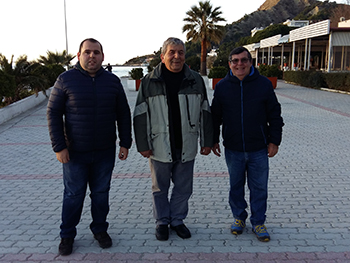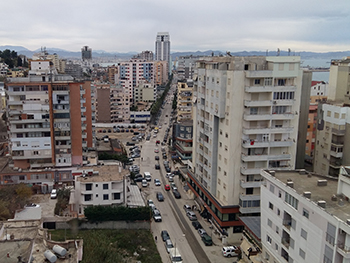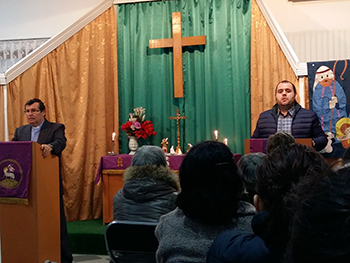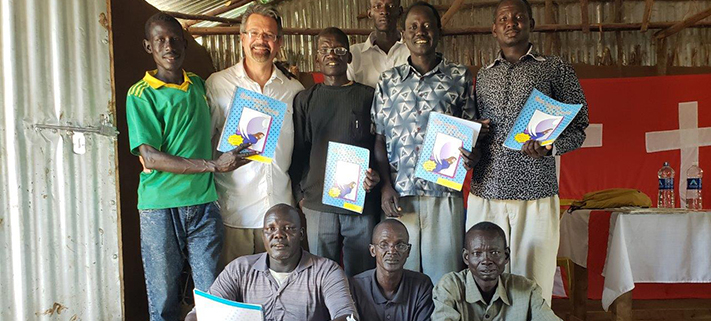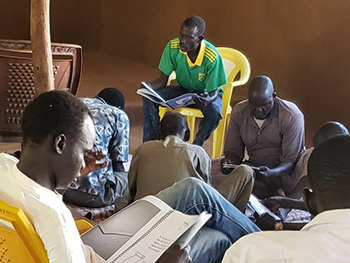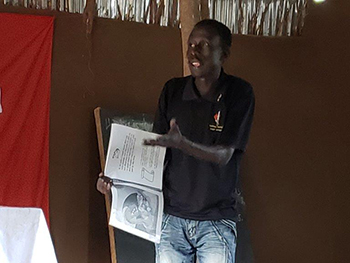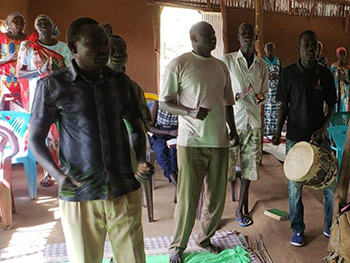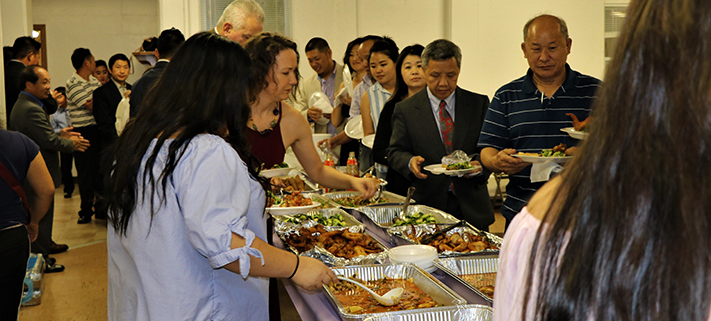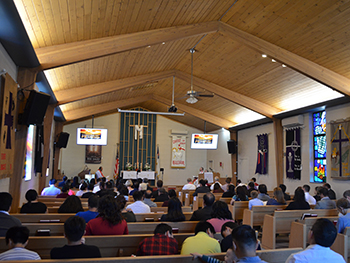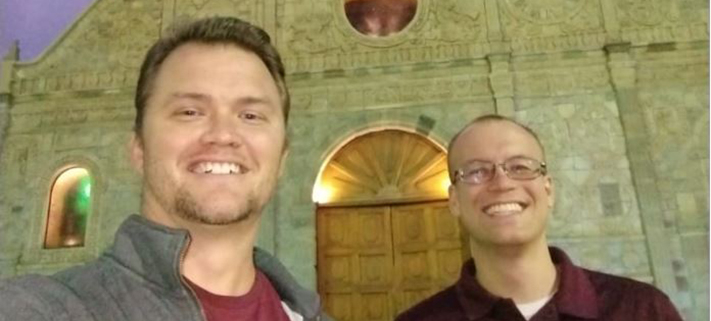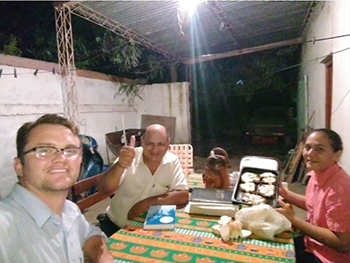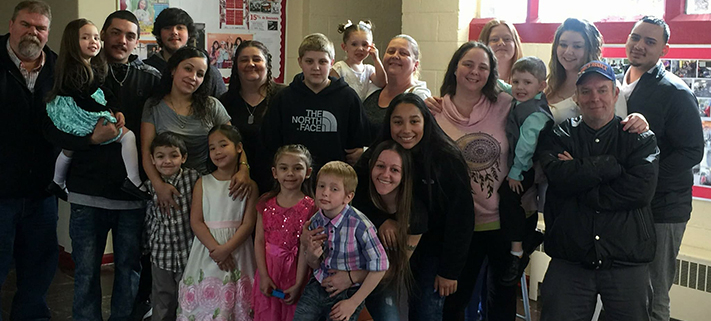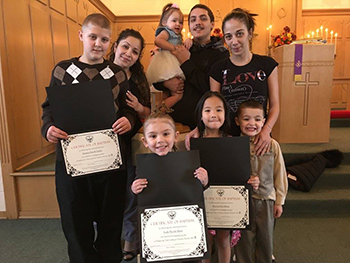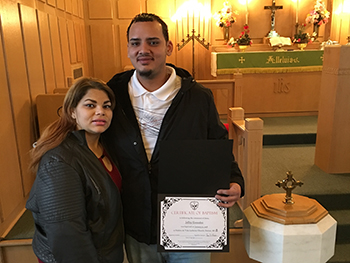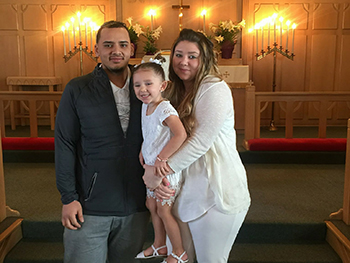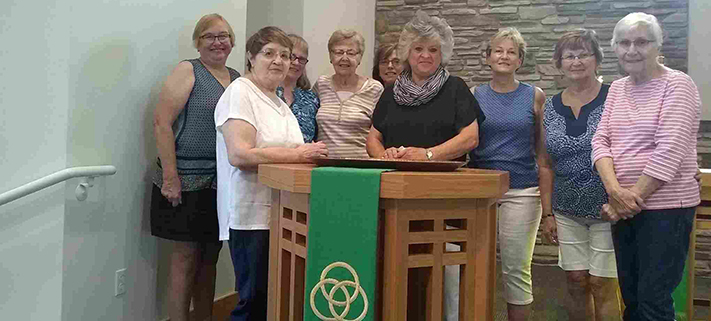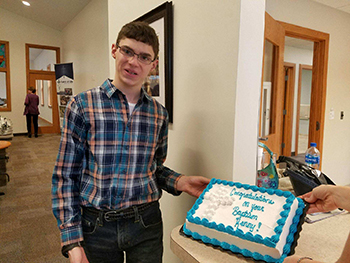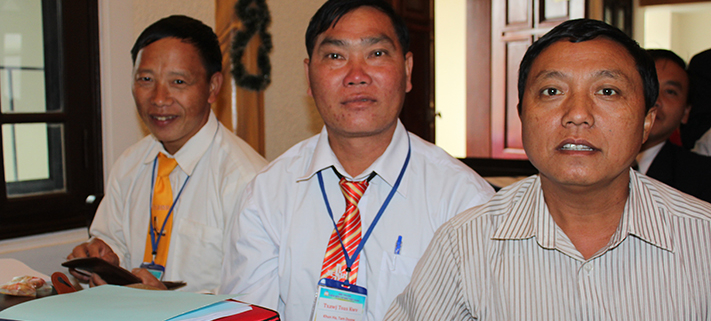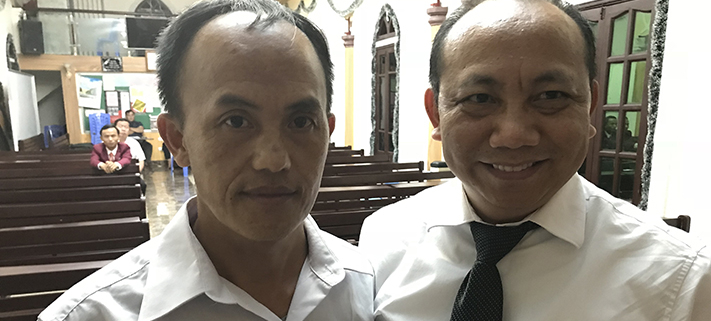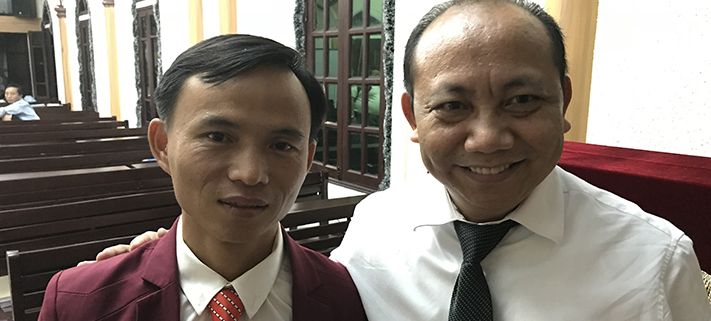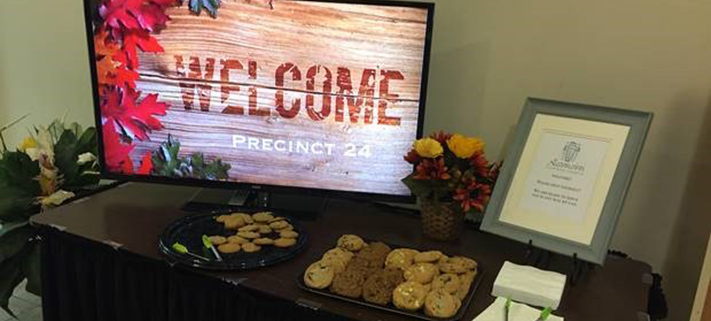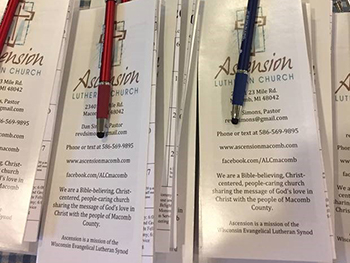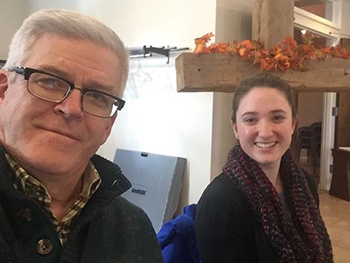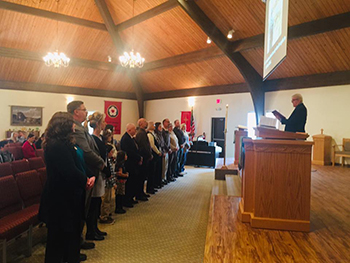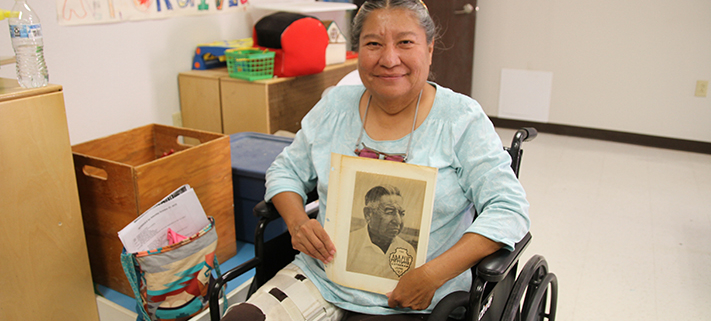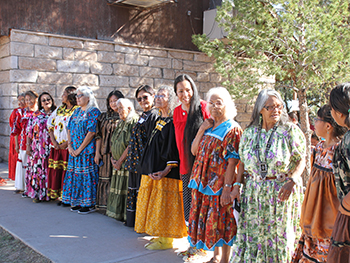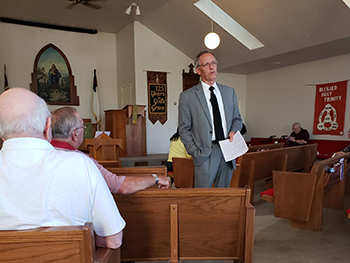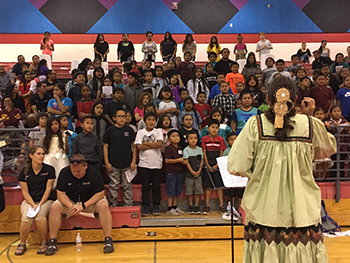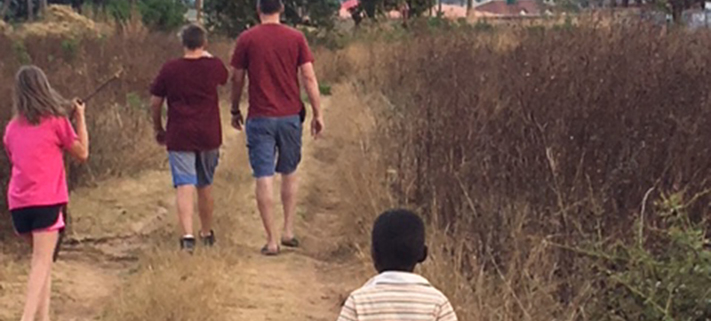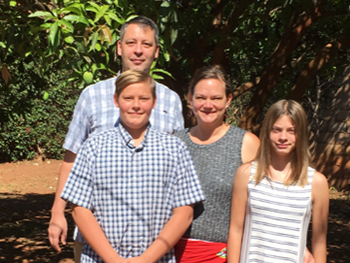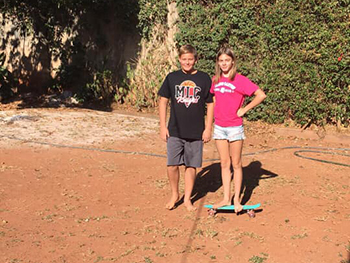Pastor Tsavxwm Ham is 50 years old and serves in Son La province of Vietnam. He comes by motorcycle and bus (a 9-hour trip) to the training seminars in Hanoi. He is the chairman of the Hmong Fellowship Church (HFC).
I’ve been a pastor in Kon Tong village since 2006. Before that, I served as an elder in the church from 1996 to 2003. In 2003, I began studying to be a pastor through the Vietnamese Fellowship Church (VFC). I passed that program in 2006 and became a pastor. In 2007, I was appointed as Chairman of the Hmong Fellowship Church.
My story of how I became a Christian is important to me. Before I became a Christian, I was one of the men in my village who was educated in the Hmong traditions and customs. I was also the director for Hmong funerals and a funeral musician. During that time, I felt very sad. I wanted to help the people. They would always give me a lot of meat when I would do a funeral for them. They treated me very well – and I really wanted to help them. But I had nothing to help them with. The funeral could only leave them sad and empty. At that time, I also worked as a Shaman and a fortune teller for the people. In my heart, I knew that all of this was wrong and a lie, and I couldn’t keep on deceiving my people by acting as a fortune teller and a Shaman.
All of this time, instead of helping the poor families, I took money from them as the Shaman. I felt very bad about that. I thought about how I could change my life and do something to help the community. Around that same time, I heard a pastor preaching through a radio broadcast. A village near me had already become Christian, so I contacted the leaders from that village to get materials from them. Through the radio broadcast and the Christian materials, I also became a Christian and left my former life behind.
One year after I became a Christian, in 1997, I was arrested and tortured by the local government. The persecution of Christians was heavy at that time. Since I was appointed as the Chief of my village, I had some authority to be able to defend my faith and the new faith of my village against the persecution. But the attack against our faith was very harsh. In 1998, I was recommended by the local government to receive special training – ‘re-educating’ me because of my faith. The goal of this training was that I would renounce my Christian faith. But at the beginning of the training, they talked about what Christians believe about God and creation. It was meant to show me the foolishness of Christianity, but it motivated me to learn even more about God and the creation of the world. And when I came back from the training, I was even more motivated to serve my congregation.
After I returned from the seminar, the local government sent officers to follow me to my village. They ask me to renounce my faith. I said I would not. The officials told me that I must – and I told them, “you taught me to have more faith in God because your introduction of the seminar talked about God.” I confronted them because they were saying that I needed a license to have a church. But they hadn’t had a license to carry out the education seminar. So I told them that I didn’t need a license to serve a church in this area either. In the end, they couldn’t get me to renounce my faith and they went home.
But still, I received a lot of persecution and pressure. After the officers left, they sent 8 higher officers to arrest me. They arrested me and my wife and separated us. They questioned us both and threatened us. They wanted us to renounce our faith. But I asked them, “Why can the people in the city have a church, and the minority in the mountains cannot have a church?” They answered: “In the city, we don’t have laws to control this, but in the rural area we can’t allow there to be churches.” I asked, “who made these rules?” They wouldn’t answer. At that point, they said, “Why don’t we call a Hmong officer to talk to you in Hmong – we aren’t getting anywhere in Vietnamese.”
So they sent the Hmong officer to talk to me. I asked him the same question. He explained that this was not from the central government, but that these rules were added for the local government. I pushed on. “If it isn’t from the central government, how can you arrest me?” After a time, they delivered their response: We will not do anything to you, we will let you go home. Just don’t spread the news that we persecuted your family. They sent another three soldiers to watch me for three weeks. They wanted to make sure I don’t cause any problem for the government.
After this time, I met with the first believer in my area. I asked him to come to Hanoi with me. We would go to talk to the Christian Mission Alliance (CMA) church. We went and met with the president, but he didn’t help us. He just sent us back and said all sorts of bad things about the Hmong people. We were so disappointed. I was so angry. I resigned from my post as the chief of the village, and traveled by foot for three days through the jungle villages around my home to try to help out Christians who were being persecuted by the government and to try to get them released from prison. All the while, I tried to convince the local government officials that the persecution didn’t come from the central government, but from local government.
I took members from the churches into the jungle and we talked in secret about our faith. We talked about what the best way would be to avoid persecution. We wanted to make sure that we were able to have a good foundation for the Christians in the Hmong community. At one point, we went back to the CMA again, but they wouldn’t protect us – and they wouldn’t provide us with anything. They only gave us a few Bibles and sent us back home. The warned us not to say that we received the Bibles from the CMA. So, we went home, and I continued to meet with my members and the other Christians in our area. And we would pray together.
Another time when we were being persecuted and Christians were being arrested, I tried to debate with the officers. I told them, “Since I was 15, I was an officer in the government.” They sent a top general to come and talk to me. His goal was to convince me to recant my faith. He told me, “If any war comes to this country, it will come from the Christians.” But I said, ‘Christians won’t bring war. But if you will bring war against the church, that is your choice. We won’t deny our faith. If you want, I will call together all of the Christians in our province – and you can kill us all. But we won’t wage war.” I continued, “We have fought for this country. Their families have shed blood to protect this country.” The general sat silently. “I’ve never seen anyone speak as boldly as you,” he said.
Again, the general attacked: “Christians are bad people. Every Sunday they come to church and they are engaging in sexual immorality. The men and the leaders seduce the women.” I told the officers, “You come and stay with me for three days. I will feed you and you can stay at my house. We will go around and find Christian leaders who do this. If we catch any of them, I will be the first to hand them over to be executed. If not, you will need to apologize to this community.”
I continued, “You aren’t here to protect the people, but accuse them of wrongdoings – things that they aren’t doing.” I told them that if they didn’t stop persecuting us I would write down all of their names and would go directly to the United States Embassy and submit their names.
I remember – the general got so mad. He threw his documents in my face. But in the end, the general just left. They sent word: “We apologize, and we will leave you.” Since then, the persecution in my area has reduced. That was the local government at that time – but at this time the government has changed and there is very little persecution in our region.
Even though our region was one of the most persecuted in all of Vietnam, the Christians multiplied quickly. We worked hard to spread the gospel. I also ran a clinic in my house. Whenever we would admit sick people into our house, we would give them the gospel.
In 2004, I heard that the Vietnamese Fellowship Church (VFC) was welcoming churches into their fellowship. So I called the VFC to see if we could be part of that. At that time, I started to receive some theological training from them. In 2007 they appointed me to oversee 16 districts and the towns in them in my area. Then, in 2010, they appointed a few more pastors to help me oversee those congregations and then they called me to oversee all the congregations in the Songla province. In 2012, we were invited to the VFC’s annual meeting in Hochimin. There I was called to be the chairman of the HFC.
Currently, in the HFC, we have 240 senior pastors and 330 additional pastors. Many of our churches don’t have pastors and are served by local elders who have been appointed. In total, we have more than 100,000 members. In the congregation that I pastor, we have 58 families that are members. Some of the people who come to worship with us aren’t members yet. In total, we have an average of 380 in attendance every week.
In addition to serving the local congregation, I also personally oversee 30 pastors and around 18,000 members in my area. Our goal is to continue to share the gospel with the families and villages around our church and in our district who don’t yet know Christ. We have some goals for our congregation – our current church building and location is too small to provide for the growing church. We hope to build another church building on the hill in the village – a bigger church so we can have more people come to worship. We also hope to build a small park in the area around the church to attract tourists from other villages to our town and provide an opportunity for our members to do outreach to them.
The training we are receiving is key – the leaders and members in my church need more training in the word of God so that they are well equipped. We want to train leaders in our church to spread the gospel to the surrounding villages. When we receive the training from WELS in Hanoi, we take it back and train the local leaders with what we have received.
The pastors in my area have received training from a variety of churches in the past – the Vietnamese churches, Korean missionaries, and even Hmong pastors who have come from the United States. But each of these groups and individuals came and did the training based on what they wanted to accomplish. And all we learned were rules to follow, good works that must be done, and how to live good lives to please God. We would go to training from these churches, but among our churches, there was no stability, no peace, and no gospel. We had no unity among our churches because we all just interpreted the Bible based on our own ideas or the various things we had learned.
That all started to change in 2013 when Pastor Lor started doing training for us in Hanoi. Now we have both physical and spiritual unity. The Lutheran doctrine has brought peace and harmony to the people in the villages – and as a result, our members are sharing their faith and our churches are multiplying.
Personally, since I have been receiving training from the WELS, I see a change in myself as well. Before this, I taught and used my own authority in the church. At that time, I thought, “I’m the smart one – I’m the one with training, and I am the one with the authority. I can force my members to do the right thing.” But since I have been studying with the Lutheran Church, I have changed. I have reevaluated myself and how I taught in the past – and know that I have taught false teachings. The training made me value my members more – and know that they need the gospel. I used to use the law to motivate my members. That was how I showed my authority. But since receiving this training, I now understand that the law won’t help the members. I started to share the gospel and taught them to understand that the gospel will motivate you to love and show care for each other. What I have noticed is that now my members respect me even more than they ever did when I only used the law, rules, and traditions to lead them.
On May 29th, 2018, I gathered together 129 local church leaders at my congregation. I retrained them in Lutheran theology as we have learned it from WELS. I assured them and demonstrated to them that this teaching was the true Biblical teaching. After that training, they encouraged me to keep on receiving training so that in the future the local leaders can continue to receive training from me. It is their dream that they can all receive formal training as well. At that meeting, I also invited local government officers to attend. When I finished the training, they applauded my teaching. The head officer said that this was one of the best teachings that they had ever heard. They encouraged me to continue my training and bring it back to the villages so that the people can continue to learn the Bible and grow in their understanding.
We’re not done yet. We need more training – for this generation and the next generations of pastors. I’m 50 years old right now – I hope we can continue to partner in training until I am 60 or even 80 – until we can carry on this ministry by ourselves and be confident to train our own pastors and leaders. The HFC is scattered across 14 provinces of Vietnam. It is our goal as HFC to be the ‘big brother’ and standard for solid Christian Hmong churches in all of Vietnam.
Finally, I don’t have anything to send to my WELS brothers and sisters in the U.S. to even begin to show our gratitude or appreciation. All we can send is our ‘empty’ words of Thank You to you. But we are thankful. We trust that in the future the training will continue to equip leaders so that the gospel will spread to many more throughout Vietnam. Pray for us. Pray for our religious freedom in this country, especially for the Hmong in the rural areas. And pray that the many minority people will have the opportunity to hear the gospel and believe it.
[fbcomments num=”5″]
